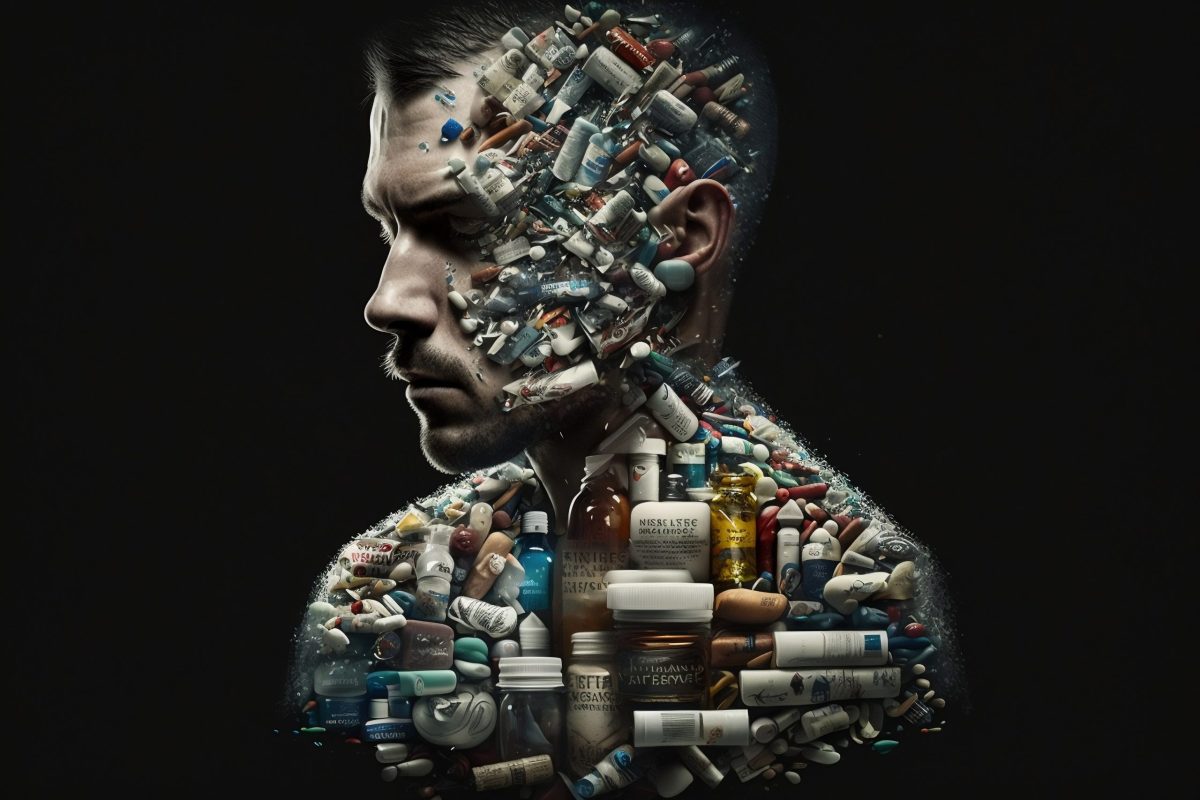The relationship between addiction and mental health is complex and interconnected. Substance abuse can significantly affect a person’s mental well-being, leading to the development or exacerbation of mental health disorders such as depression, anxiety, or psychosis. On the other hand, individuals with pre-existing mental health disorders may turn to substances as a way to self-medicate or alleviate their symptoms, leading to the development of addiction. This intertwined relationship between addiction and mental health underscores the importance of recognizing and treating both conditions simultaneously, which is known as a dual diagnosis.
A dual diagnosis requires a comprehensive and integrated approach to treatment. Simply addressing one condition while neglecting the other can undermine the effectiveness of the treatment. It is crucial to understand that each condition can influence and reinforce the other, making it necessary to approach recovery from a holistic perspective. Successful treatment for dual diagnosis involves a combination of therapies tailored to address both the mental health disorder and addiction. Integrated treatment plans may include individual counseling, group therapy, medication management, and support groups. By addressing both the addiction and mental health concerns concurrently, individuals with dual diagnosis have a better chance of achieving long-term recovery and improving their overall well-being. But what exactly is dual diagnosis? Let’s learn from this article.
Table of Contents
Understanding Dual Diagnosis
Dual diagnosis refers to the co-occurrence of both a mental health disorder and substance abuse or addiction problem. It is a complex issue that requires a comprehensive evaluation and treatment approach. Understanding dual diagnosis is essential for providing suitable care for affected individuals, as co-occurring disorders can make treatment more challenging and can lead to a more severe outcome if left untreated. Dual diagnosis treatment involves integrated and simultaneous addressing of both the mental health and addiction issues to ensure that the patient can maintain abstinence from drugs or alcohol and address the underlying mental health disorder. Such an approach offers the best chance of recovery and increased quality of life for individuals with dual diagnosis.
Common Mental Health Disorders Linked With Addiction
The link between addiction and mental health disorders such as depression, anxiety disorders, bipolar disorder, post-traumatic stress disorder (PTSD), and borderline personality disorder is well-established. It is common for individuals struggling with addiction to have underlying mental health issues that fuel their substance abuse. Identifying and treating these concurrent disorders requires an integrated approach that addresses both the addiction and the individual’s mental health needs. Therefore, recognizing this link is essential for effective, successful dual diagnosis treatment.
Importance Of Integrated Treatment
For those recovering from addiction, an integrated treatment approach is vital. It combines both mental health and addiction treatment approaches into a comprehensive and unified plan. The significance of integrated treatment lies in its ability to address the interconnected nature of these disorders, as they often influence and exacerbate each other.
By providing holistic care that targets both mental health and substance abuse, integrated treatment promotes better outcomes and lasting recovery for individuals. It ensures that all aspects of an individual’s well-being are considered and addressed simultaneously, leading to improved overall functioning and a higher quality of life.

Benefits Of Integrated Treatment
Integrated treatment offers numerous benefits for individuals with dual diagnosis. Firstly, it addresses both mental health disorders and addiction simultaneously, leading to more effective and long-lasting recovery outcomes. By treating both conditions together, integrated treatment helps identify and address the underlying factors contributing to the addiction. Additionally, integrated treatment fosters a collaborative approach, with mental health and addiction professionals working together to provide comprehensive care and support.
Holistic Approaches To Dual Diagnosis Treatment
Holistic approaches to dual diagnosis treatment recognize the interconnected nature of mental health and addiction and aim to address the whole person rather than just focusing on symptoms or behaviors. These approaches emphasize the importance of treating the underlying causes and contributing factors of both mental health disorders and substance abuse. Holistic treatment may include a combination of therapy modalities such as individual counseling, group therapy, family therapy, and psychoeducation.
Additionally, it may incorporate alternative therapies like yoga, meditation, art therapy, and exercise to promote overall well-being and stress reduction. The goal of holistic dual diagnosis treatment is to support individuals in their journey toward recovery by addressing the physical, emotional, social, and spiritual aspects of their lives. By taking a comprehensive and person-centered approach, holistic treatment can help individuals gain a deeper understanding of themselves, develop coping skills, and foster lasting recovery.
Rebuilding Relationships
Rebuilding relationships is a crucial aspect of the recovery process for individuals with dual diagnosis. Substance abuse and mental health disorders can often damage interpersonal relationships, leading to strained connections with family members, friends, and significant others. The process of rebuilding relationships involves open communication, trust-building, setting healthy boundaries, and addressing past conflicts or hurts. It requires individuals to take responsibility for their actions, make amends where necessary, and work towards rebuilding mutual respect and understanding. Therapeutic interventions, such as family therapy or couples counseling, can play a vital role in facilitating this process. Rebuilding relationships not only contributes to a strong support system for individuals in recovery but also promotes healing and a sense of belonging, ultimately enhancing overall well-being and reducing the risk of relapse.
Relapse Prevention Strategies
Relapse prevention strategies are essential in supporting individuals with dual diagnosis in maintaining their sobriety and managing their mental health effectively. These strategies involve identifying and understanding personal triggers and high-risk situations that may lead to a relapse. Individuals are encouraged to develop coping skills and create a relapse prevention plan that includes healthy coping mechanisms, stress management techniques, and strategies for avoiding or managing triggers.
Seeking ongoing support through therapy, support groups, or peer networks is also vital in maintaining sobriety and managing mental health challenges. Education about the risks of relapse, understanding the importance of self-care, and maintaining a strong support system are all key components of relapse prevention strategies. By implementing these strategies, individuals can better navigate challenges, reduce the likelihood of relapse, and continue on their journey toward long-term recovery.
Conclusion
Effective management of dual diagnosis requires an integrated treatment approach that addresses both mental health and addiction simultaneously. Individuals can achieve long-lasting recovery by acknowledging the inherent connection between these conditions and adopting a comprehensive approach. Integrated treatment, accompanied by holistic approaches, focuses not just on symptom reduction but also on the overall well-being of individuals, aiding their recovery journey. With the right support, individuals with dual diagnosis can regain control over their lives, rebuild relationships, and create a brighter future for themselves.


 Home
Home









